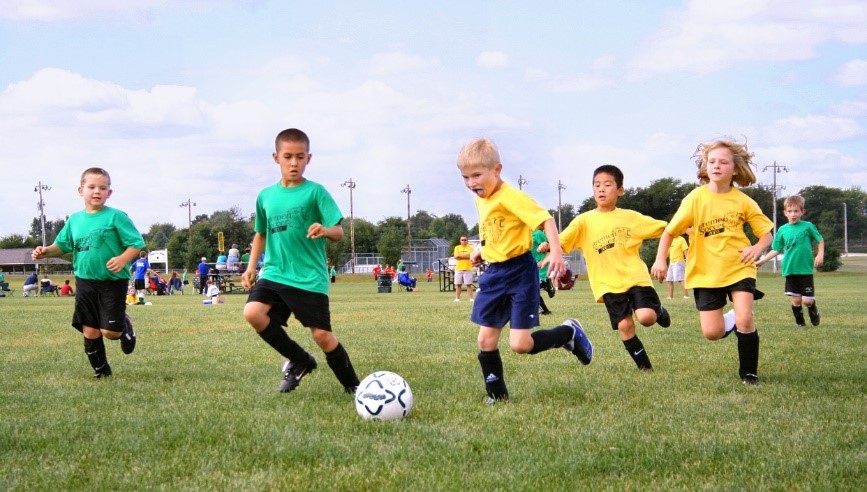National Sports Day – Children and Sports
National Sports Day – Children and Sports
National Sports Day
The National Sports Day is celebrated throughout India on 29 August, every year. This day marks the birthday of Dhyan Chand, a legendary hockey player who brought glory to the nation by winning three Olympic gold medals. This day highlights the need for sports and development of children in aspects beyond the classroom.
According to a recent research, 61% of Indian school-going children lack the skills needed to engage in sports. These skills include locomotor skills which are developed by running and hopping, manipulative skills which are de veloped by throwing and catching, spatial awareness and coordination skills. Only by continuous practice can the aptitude in a
sport increase, which will in turn develop the skills.
Need for outdoor sport:
Sports/play time is a significant aspect of a child’s life. Children need to be encouraged to play as much as possible, rather than spending time with smart devices.
With numerous schools making ‘play-time’ mandatory for children, it is important to understand the role of sports in today’s world and why it is necessary for children to go beyond the textbooks.
- Reduce screen time Studies have shown that, children are prone to spending more time with tablet, phones and television. Introducing them to a sport at very young age will not only keep them away from technology but will also help them stay healthy.
- Make them active Being active involves regular exercise, which in turn strengthens the bones and the muscles, induces better sleep, and helps in weight management.
- To spend time with friends Taking up a sport is a way to ensure quality time with friends. Such quality time helps to build the friendship.
- To develop networking skills Networking is an important skill that has to be inculcated in children, right from a very young age. Sports aids in networking by allowing children to connect with not only their classmates, but with children across different age group.
- To improve Sports help children to develop their thinking skills and decision-making skills. This will further aid in decision making skillsdevelopment of judgement skills and a better understanding of perspectives.
Advantages:
Playing a sport is more than mere skill development. It offers various benefits like:
- Well-being Taking up sports like cricket, basketball, etc., develops the overall well-being of the child. Playing a sport for a minimum of one hour everyday helps to stay fit and improves the overall health of a child.
- Staying active Playing sports keeps the child physically and mentally active. Staying active improves the cognitive function of the brain.
- Socialising Playing sports encourages socialising among children as they get to meet and interact with other children. A good networking skills aids in the development of interpersonal skills and communication.
- Builds confidence Children tend to become more confident when they start playing a sport of their choice.
- Stress buster Spending minimum time with a sport helps to reduce stress and channel it in a positive direction.
- Skill Development Children who take up sports develop various skills like teamwork, empathy, communication and understanding.
Disadvantages:
- Injuries Children are prone to getting hurt while playing. They should be asked to stay careful while playing any sport.
- Strain Taking up a sport can take a toll on the health of a child. Sometimes children may face peer pressure and may end up pushing themselves a little too much, to perform better. Children in such cases should be encouraged to enjoy the sport they play, rather than compare themselves with their peers.

- Fatigue Too much of physical activity can drain a child of his/her energy. Despite being beneficial for health, excessive time with a sport can lead to fatigue.
- Time Spending too much time with a sport will make it difficult for a child to focus on other aspects like studies and quality time with family. Children should be taught to strike a balance between the sports they play and the time they are able to allocate for family and studies.
- Differences among people Being extremely competent in a sport can lead to difference of opinion among players and this affect the bonding the entire team shares.
- Pressure Children actively involved in some form of sport are prone to feel pressurised as they need to live up the expectations of the team members.
Children can engage in sports like hockey, cricket, football, throwball, basketball, badminton, table tennis, tennis, etc. They can also engage in newer sports like golf, gymnastics, skating, baseball, cycling, rugby and handball. Track events like running, jumping and throwing are also a form of sports that they can engage in on a daily basis to stay healthy and fit. Sports as an aspect should be made a part of the child’s daily routine.























